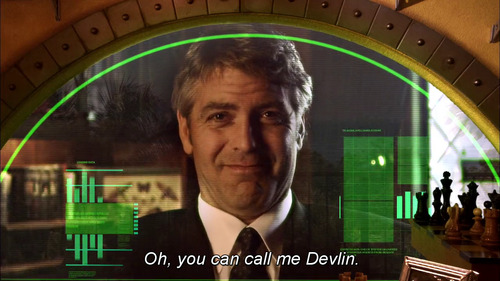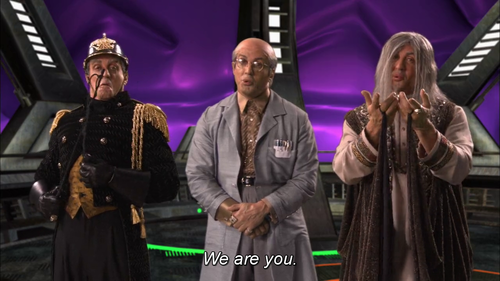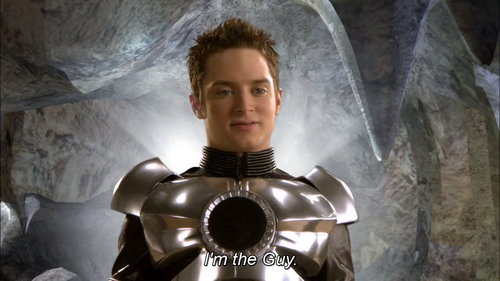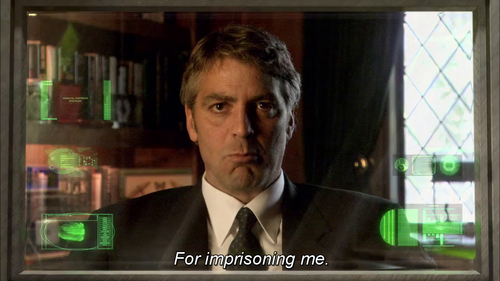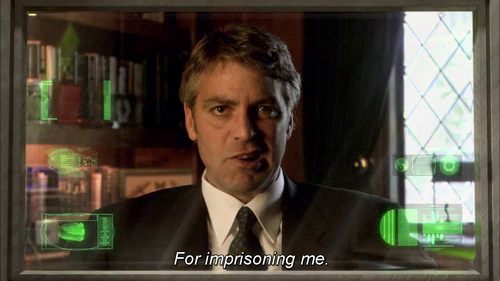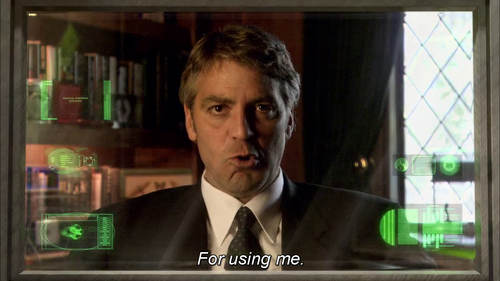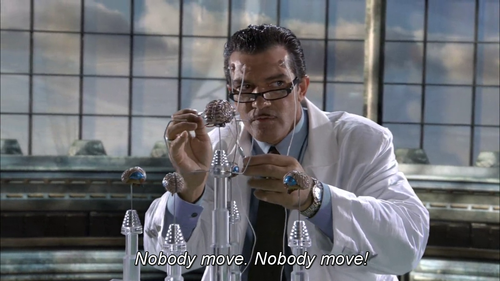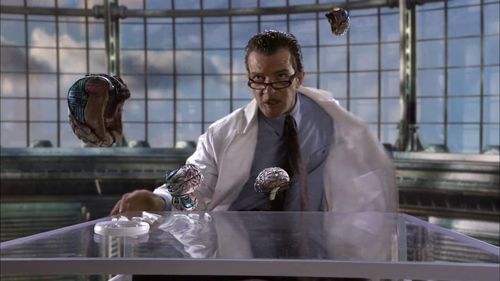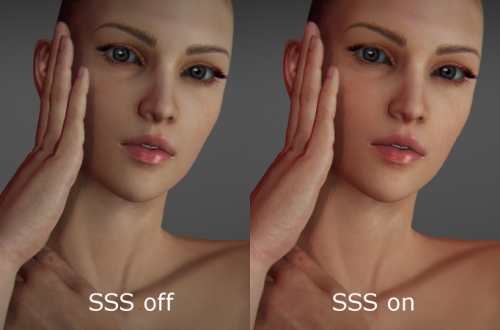[content note: mental illness. I am still in training and do not understand these issues even as well as a fully-trained psychiatrist, let alone a researcher, so take all the biology and studies in here with a grain of salt until you double-check]
I.
IO9’s new article The Most Popular Antidepressants Are Based On An Outdated Theory jumps on a popular bandwagon of criticizing psychiatry for botching the “chemical imbalance” theory. See for example The New Yorker, BBC, The New York Times, and various books .
.
(…and also The Myth Of Chemical Imbalance, Debunking The Chemical Imbalance Myth, The Chemical Imbalance Fraud, and Depression Delusion, The Myth Of The Chemical Imbalance, etc)
According to all these sources psychiatry sold the public on antidepressants by claiming depression was just a chemical imbalance (usually fleshed out as “a simple deficiency of serotonin”) and so it was perfectly natural to take extra chemicals to correct it. However, they had no real evidence for this theory except that serotonergic drugs effectively treat depression, which is not very much evidence at all (antibiotics effectively treat pneumonia, but pneumonia isn’t “an antibiotic deficiency”). And now the research is unequivocal that serotonin deficiency is not the cause of depression, and psychiatry has ended up with lots of egg on its face.
This narrative is getting pushed especially hard by the antipsychiatry movement, who frame it as “proof” that psychiatrists are drug company shills who were deceiving the public. The conversation has required a host of rebuttals and counter-rebuttals.
For example here antipsychiatry blog Mad In America attemps to rebut psychiatrist Dr. Ronald Pies, who argues that psychiatrists never pushed the chemical imbalance theory. Pies says that “The ‘chemical imbalance theory’ was never a real theory, nor was it widely propounded by responsible practitioners in the field of psychiatry,” and cites the American Psychiatric Association’s 2005 statement on the causes of depression:
The exact causes of mental disorders are unknown, but an explosive growth of research has brought us closer to the answers. We can say that certain inherited dispositions interact with triggering environmental factors. Poverty and stress are well-known to be bad for your health—this is true for mental health and physical health. In fact, the distinction between “mental” illness and “physical” illness can be misleading. Like physical illnesses, mental disorders can have a biological nature. Many physical illnesses can also have a strong emotional component
Mad In America doesn’t accept his claim, and counter-cites two speeches by American Psychiatric Association presidents to prove that they did push the chemical imbalance theory:
In the last decade, neuroscience and psychiatric research has begun to unlock the brain’s secrets. We now know that mental illnesses – such as depression or schizophrenia – are not “moral weaknesses” or “imagined” but real diseases caused by abnormalities of brain structure and imbalances of chemicals in the brain.” – Richard Harding, 2001 APA president
And:
The way nerves talk to each other, and communicate, is through the secretion of a chemical called a neurotransmitter, which stimulates the circuit to be activated. And when this regulation of chemical neurotransmission is disturbed, you have the alterations in the functions that those brain areas are supposed to, to mediate. So in a condition like depression, or mania, which occurs in bipolar disorder, you have a disturbance in the neurochemistry in the part of the brain that regulates emotion. – Jeffrey Lieberman, 2012 APA President
I have no personal skin in this game. I’ve only been a psychiatrist for two years, which means I started well after the term “chemical imbalance” fell out of fashion. I get to use the excuse favored by young children everywhere: “It was like this when I got here”. But I still feel like the accusations in this case are unfair, and I would like to defend my profession.
I propose that the term “chemical imbalance” hides a sort of bait-and-switch going on between the following two statements:
(A): Depression is complicated, but it seems to involve disruptions to the levels of brain chemicals in some important way
(B): We understand depression perfectly now, it’s just a deficiency of serotonin.
If you equivocate between them, you can prove that psychiatrists were saying (A), and you can prove that (B) is false and stupid, and then it’s sort of like psychiatrists were saying something false and stupid!
But it isn’t too hard to prove that psychiatrists, when they talked about “chemical imbalance”, meant something more like (A). I mean, look at the quotes above by which Mad In America tries to prove psychiatrists guilty of pushing chemical imbalance. Both sound more like (A) than (B). Neither mentions serotonin by name. Both talk about the chemical aspect as part of a larger picture: Harding in the context of abnormalities in brain structure, Lieberman in the context of some external force disrupting neurotransmission. Neither uses the word “serotonin” or “deficiency”. If the antipsychiatry community had quotes of APA officials saying it’s all serotonin deficiency, don’t you think they would have used them?
Further, anyone who said that depression was caused solely by serotonin deficiency wouldn’t just be failing as a scientist, but also failing as a drug company shill. Pfizer spent billions of dollars on Effexor, which hits norepinephrine as well as serotonin, and they’re just going to dismiss all of that as useless? GlaxoSmithKline has Wellbutrin, which hits dopamine and norepinephrine and maybe acetylcholine but doesn’t get serotonin at all. So everyone, including the shills, especially the shills, has been very careful to say that depression was a “chemical imbalance” rather than a serotonin deficiency per se.
So if you want to prove that psychiatrists were deluded or deceitful, you’re going to have to disprove not just statement (B) – which never represented a good scientific or clinical consensus – but statement (A). And that’s going to be hard, because as far as I can tell statement (A) still looks pretty plausible.
II.
If you listen to these articles, psychiatrists decided that neurotransmitters (or just serotonin?) were implicated in depression solely on the evidence that SSRIs were effective antidepressants, even though every study trying to measure serotonin levels directly came back with negative results. For example, The Myth Of The Chemical Imbalance Theory writes:
There is no question that the chemical imbalance theory has spurred chemists to invent new anti-depressants, or that these anti-depressants have been shown to work; but proof that low serotonin is to blame for depression – and that boosting serotonin levels is the key to its treatment – has eluded researchers.
For starters, it is impossible to directly measure brain serotonin levels in humans. You can’t sample human brain tissue without also destroying it. A crude work-around involves measuring levels of a serotonin metabolite, 5-HIAA, in cerebrospinal fluid (CSF), which can only be obtained with a spinal tap. A handful of studies from the 1980s found slightly decreased 5-HIAA in the CSF of depressed and suicidal patients, while later studies have produced conflicting results on whether SSRIs lower or raise CSF levels of 5-HIAA. These studies are all circumstantial with regards to actual serotonin levels, though, and the fact remains there is no direct evidence of a chemical imbalance underlying depression.
The corollary to the chemical imbalance theory, which implies that raising brain serotonin levels alleviates depression, has also been hard to prove. As mentioned previously, the serotonin-depleting drug reserpine was itself shown to be an effective anti-depressant in the 1950s, the same decade in which other studies claimed that reserpine caused depression-like symptoms. At the time, few psychiatrists acknowledged these conflicting reports, as the studies muddled a beautiful, though incorrect, theory. Tianeptine is another drug that decreases serotonin levels while also serving as a bona-fide anti-depressant. Tianeptine does just the opposite of SSRIs – it enhances serotonin reuptake. Wellbutrin is a third anti-depressant that doesn’t increase serotonin levels. You get the picture.
If you prefer your data to be derived more accurately, but less relevantly, from rodents, you might consider a recent meta-analysis carried out by researchers led by McMaster University psychologist Paul Andrews. Their investigation revealed that, in rodents, depression was usually associated with elevated serotonin levels. Andrews argues that depression is therefore a disorder of too much serotonin, but the ambiguous truth is that different experiments have shown “activation or blockage of certain serotonin receptors [to improve] or worsen depression symptoms in an unpredictable manner.”
Other problems with the chemical imbalance model of depression have been well documented elsewhere. For instance, if low serotonin levels were responsible for symptoms of depression, it stands to reason that boosting levels of serotonin should alleviate symptoms more or less immediately. In fact, antidepressants can take more than a month to take effect. Clearly, something here just doesn’t add up.
Clearly!
GABA is a neurotransmitter that promotes inhibition and relaxation. Suppose I were to tell you that alcohol is a drug that mimics the effects of GABA. Which it is.
You might say: something is wrong with this theory! After all, people who drink alcohol don’t always get relaxed and inhibited. A lot of the time they get uninhibited and angry and violent! And then if they drink too much of it, they get super-inhibited to the point where they’re in a total blackout. Also, alcoholics who have been drinking for many years have higher levels of anxiety than non-alcoholics, but anxiety is also the opposite of relaxation! Clearly, something here just doesn’t add up. Maybe the neuroscientists are all shills for Budweiser!
Or else maybe the brain is kind of complicated. In the case of alcohol we pretty much know what’s going on. Alcohol does inhibit and relax you, but in some people and at some doses, it preferentially inhibits and relaxes the parts of the brain involved in inhibiting and relaxing the rest of the brain, meaning that the person as a whole because more uninhibited and violent. At higher doses, it inhibits and relaxes the entire brain, leading to confusion and eventually blackout. And once you’ve been taking alcohol for many years, your brain adjusts to the higher level of GABA-like chemicals by producing fewer GABA receptors, making you more anxious.in general. It’s a whole bunch of contradictory effects, but when you look at the neuroscience it makes sense.
We know less about the serotonin picture, but what we know suggests something similar is going on. Serotonin has different effects in lots of different parts of the brain. There are fourteen different types of serotonin receptor, all of which do subtly different things. Some serotonergic neurons have autoreceptors that cause decreased release of serotonin in response to serotonin. The brain responds to different levels of serotonin by slowly altering endogenous serotonin production as well as the expression of the different serotonin receptors. Etc, etc, etc.
Lest it sound like I’m making excuses rather than presenting evidence: A study on a monkey model – generally preferred to humans when you want to kill your patients and take apart their brains when you’re done – showed that depressed macaques had elevated levels of serotonin in the dorsal raphe nuclei and decreased levels of serotonin in the hippocampus, resulting in average levels of serotonin in the cerebrospinal fluid where the experiments mentioned above took their serotonin measurements. A study with a more sophisticated measurement process, Elevated Brain Serotonin Turnover in Patients With Depression, found that depressed subjects had serotonin turnover as measured in the jugular vein about twice as high as healthy controls (p = 0.003), and successful treatment with SSRI therapy corrected this imbalance (though others dispute the methodology).
All of this sort of fits. If depression involves a distorted pattern of serotonin across the brain, then both certain drugs that increase serotonin levels and certain drugs that decrease it might be helpful. And SSRIs might take a month to work if their mechanism of action isn’t the direct serotonin increase, but a contrary response they provoke from the brain. I think I heard from someone in the field that a month is about how long it takes for them to change the levels of expressed 5HT receptors by altering genetic transcription. Or something. I’m not a neuroscientist (though you can read some more complicated work from people who are) and I don’t know. The point is that you can get a heck of a lot more complex than just “Too little serotonin!” versus “Too much serotonin!”
So does this mean depression “was really serotonin after all”?
No. It means we have good evidence serotonin is involved somewhere. Among the other things that we have good evidence are involved somewhere are: dopamine, norepinephrine, acetylcholine, cytokines, BDNF, thyroid hormones, and whether the kids at school picked on you in first grade.
Suppose you ask me what caused you to become blind. I happen to have your medical records and know that the answer is proliferative retinopathy secondary to Type 2 diabetes, but you’ve been living in a cave your entire life and never even heard of diabetes. Which is the correct answer to your question?
1. Your blindness is caused by tiny little blood vessels growing all over your eyes
2. Your blindness is caused by imbalance in a chemical called protein kinase C-delta and the resulting signaling cascade
3. Your blindness is caused by too much sugar in your blood
4. Your blindness is caused by your cells becoming less sensitive to insulin
5. Your blindness is caused by you drinking too much Coca-Cola
All of these are true. You drink too much Coca-Cola, it causes your cells to lose insulin sensitivity, that causes too much sugar in the blood, that increases the activity of PKC-delta, and that causes little blood vessels to grow all over your eyes. Sometimes the chain is different. Maybe you drank too much lemonade instead of too much Coca-Cola. Maybe you drank too much Coca-Cola, but actually instead of causing diabetes it caused hypertension and then you got hypertensive retinopathy which made you blind. Maybe it was diabetic retinopathy, but actually you haven’t gotten to the proliferative stage yet, and you just had a lot of your blood vessels get damaged and start leaking and causing macular oedema. Maybe it was diabetic retinopathy, but you had a perfect diet and lost the genetic lottery. I don’t know.
If someone told you “We think it involves an imbalance in protein kinase” it would be woefully incomplete. But if someone said “That doctor there said your blindness was caused by an imbalance in protein kinase, that proves he’s a fraud!”, well, no, it wouldn’t.
Except the situation is even more complicated than this, because at least I specified this guy had diabetic retinopathy. What if somebody just asked “What causes blindness?” “High protein kinase” or “high blood sugar” would be two answers, and you could find tests supporting both. But “cataracts” would be another good answer. So would “people getting acid thrown in their eyes”.
All I’m saying is that depression is complicated. Discovering its relationship to the serotonin system is a lot like saying “blindness quite often has something to do with the retina”. It’s a big step forward, and don’t believe anyone who says it isn’t, but it’s not anywhere near the whole picture.
III.
And this starts to get into the next important point I want to bring up, which is chemical imbalance is a really broad idea.
Like, some of these articles seem to want to contrast the “discredited” chemical imbalance theory with up-and-coming “more sophisticated” theories based on hippocampal neurogenesis and neuroinflammation. Well, I have bad news for you. Hippocampal neurogenesis is heavily regulated by brain-derived neutrophic factor, a chemical. Neuroinflammation is mediated by cytokines. Which are also chemicals. Do you think depression is caused by stress? The stress hormone cortisol is…a chemical. Do you think it’s entirely genetic? Genes code for proteins – chemicals again. Do you think it’s caused by poor diet? What exactly do you think food is made of?
Diabetes is caused by a chemical imbalance: too much sugar (or too little insulin) in the blood. Parkinson’s is caused by a chemical imbalance: too little dopamine in the basal ganglia. Heart attacks are caused by a chemical imbalance: too many of the wrong kinds of lipids and lipid-related plaques in the coronary arteries.
I can get even more nitpicky if you want. The Donner Party died of chemical imbalance – too few fatty acids, proteins, and carbohydrates. The passengers of the Titanic died of a chemical imbalance – H2O in the lungs instead of O2. And it was a chemical imbalance that got Hiroshima in the end: excess uranium-235. Anything that’s not caused by ghosts is going to be “a chemical imbalance” in some sense of the word.
This is why I’m being so insistent that psychiatrists referred to “a chemical imbalance” rather than “a serotonin deficiency”. They were hedging the heck out of their bets. It might be BDNF, or cytokines, or whatever. But if something happens in the body and doesn’t show up as a gross anatomical defect on MRI, it’s a pretty good bet it’s chemical in some sense of the word.
So is this a giant cop-out? Psychiatrists said “it’s a chemical imbalance” to make it sound like they knew what they were talking about, when in fact all they meant was “it’s a thing that exists”?
Sort of.
Anything that isn’t caused by ghosts is going to be “a chemical imbalance” in some sense of the word. But in the latter half of the twentieth century, “depression is not caused by ghosts” was a revolutionary statement, and one that desperately needed to be said.
I still see this. People come in with depression, and they think it means they’re lazy, or they don’t have enough willpower, or they’re bad people. Or else they don’t think it, but their families do: why can’t she just pull herself up with her own bootstraps, make a bit of an effort? Or: we were good parents, we did everything right, why is he still doing this? Doesn’t he love us?
And I could say: “Well, it’s complicated, but basically in people who are genetically predisposed, some sort of precipitating factor, which can be anything from a disruption in circadian rhythm to a stressful event that increases levels of cortisol to anything that activates the immune system into a pro-inflammatory mode, is going to trigger a bunch of different changes along metabolic pathways that shifts all of them into a different attractor state. This can involve the release of cytokines which cause neuroinflammation which shifts the balance between kynurinins and serotonin in the tryptophan pathway, or a decrease in secretion of brain-derived neutrotrophic factor which inhibits hippocampal neurogenesis, and for some reason all of this also seems to elevate serotonin in the raphe nuclei but decrease it in the hippocampus, and probably other monoamines like dopamine and norepinephrine are involved as well, and of course we can’t forget the hypothalamopituitaryadrenocortical axis, although for all I know this is all total bunk and the real culprit is some other system that has downstream effects on all of these or just…”
Or I could say: “Fuck you, it’s a chemical imbalance.”
Last time I talked about the definition of disease I said that people want diseases to “be caused by the sorts of thing you study in biology: proteins, bacteria, ions, viruses, genes.”
I don’t think I could actually get away with telling a patient’s family “it’s caused by, you know, biology stuff” without them asking if I really went to medical school. I don’t think I’d use the term “chemical imbalance” precisely; too likely to trigger a knee-jerk reaction from people reading exactly these articles I’m responding to. But I think I would say something alone those lines. “We don’t know exactly, but it probably involves problems with brain structure and brain chemicals,” maybe. That covers about the same ground as “biology stuff” while also sounding like I’m at least trying to answer their question.
So if what I’m actually saying with that is “depression is caused by complicated biology stuff you don’t understand, and not by things like your son not really loving you, or being lazy,” am I sure that’s right?
I won’t say all depression is 100% caused by internal failures of biology in the same way that for example cystic fibrosis is caused 100% by internal failures of biology. I am happy to admit that some depressions can be caused by being in a crappy social situation, being abused as a child, being stuck in an unhappy marriage, being worried about problems at work, stuff like that.
But it’s far from obvious that being stuck in an unhappy marriage should drain your energy, drain your concentration, make you stop enjoying your hobbies, and finally drive you to suicide. We can imagine another person, or another way of designing a person, where someone says “I hate my husband, so I try to stay away from him as much as I can by working extra hard and spending my free time playing frisbee with my dog in the park.” But instead, someone hates their husband, and it drives all the joy out of their life to the point where they can’t go to work, they can’t play with their dog, they just sit around wishing they were dead.
And is that the fault of “biology stuff”? That’s a harder question than it sounds. What would it mean to say ‘no’? If we are strict materialists who don’t believe in some kind of division of labor between the brain and the soul, then yes, if it’s a feeling you’re having, it’s based in biology.
I’ve previously said we use talk of disease and biology to distinguish between things we can expect to respond to rational choice and social incentives and things that don’t. If I’m lying in bed because I’m sleepy, then yelling at me to get up will solve the problem, so we call sleepiness a natural state. If I’m lying in bed because I’m paralyzed, then yelling at me to get up won’t change anything, so we call paralysis a disease state. Talk of biology tells people to shut off their normal intuitive ways of modeling the world. Intuitively, if my son is refusing to go to work, it means I didn’t raise him very well and he doesn’t love me enough to help support the family. If I say “depression is a chemical imbalance”, well, that means that the problem is some sort of complicated science thing and I should stop using my “mirror neurons” and my social skills module to figure out where I went wrong or where he went wrong.
In other words, everything we do is caused by brain chemicals, but usually we think about them on the human terms, like “He went to the diner because he was hungry” and not “He went to the diner because the level of dopamine in the appetite center of his hypothalamus reached a critical level which caused it to fire messages at the complex planning center which told his motor cortex to move his legs to…” – even though both are correct. Very occasionally, some things happen that we can’t think about on the human terms, like a seizure – we can’t explain in terms of desires or emotions or goals an epileptic person is flailing their limbs, so we have to go down to the lower-level brain chemical explanation.
What “chemical imbalance” does for depression is try to force it down to this lower level, tell people to stop trying to use rational and emotional explanations for why their friend or family member is acting this way. It’s not a claim that nothing caused the chemical imbalance – maybe a recent breakup did – but if you try to use your normal social intuitions to determine why your friend or family member is behaving the way they are after the breakup, you’re going to get screwy results.
(in much the same way, if I just saw you take a giant handful of amphetamines, I pretty much know why you’re having a seizure, but I still can’t rationally / intuitively model the experience of why you’re “choosing” to move your limbs the way that you are.)
(though it’s important for me to temper this by mentioning that many people diagnosed with depression don’t have it)
There’s still one more question, which is: are you sure that depression patients’ experience is so incommensurable with healthy people’s experiences that it’s better to model their behavior as based on mysterious brain chemicals rather than on rational choice?
And part of what I’m going on is the stated experience of depressed people themselves. As for the rest, I can only plead consistency. I think people’s political opinions are highly genetically loaded and appear to be related to the structure of the insula and amygdala. I think large-scale variations in crime rate are mostly attributable to environmental levels of lead and probably other chemicals. It would be really weird if depression were the one area where we could always count on the inside view not to lead us astray.
So this is my answer to the accusation that psychiatry erred in promoting the idea of a “chemical imbalance”. The idea that depression is a drop-dead simple serotonin deficiency was never taken seriously by mainstream psychiatry. The idea that depression was a complicated pattern of derangement in several different brain chemicals that may well be interacting with or downstream from other causes has always been taken seriously, and continues to be pretty plausible. Whatever depression is, it’s very likely it will involve chemicals in some way, and it’s useful to emphasize that fact in order to convince people to take depression seriously as something that is beyond the intuitively-modeled “free will” of the people suffering it. “Chemical imbalance” is probably no longer the best phrase for that because of the baggage it’s taken on, but the best phrase will probably be one that captures a lot of the same idea.





